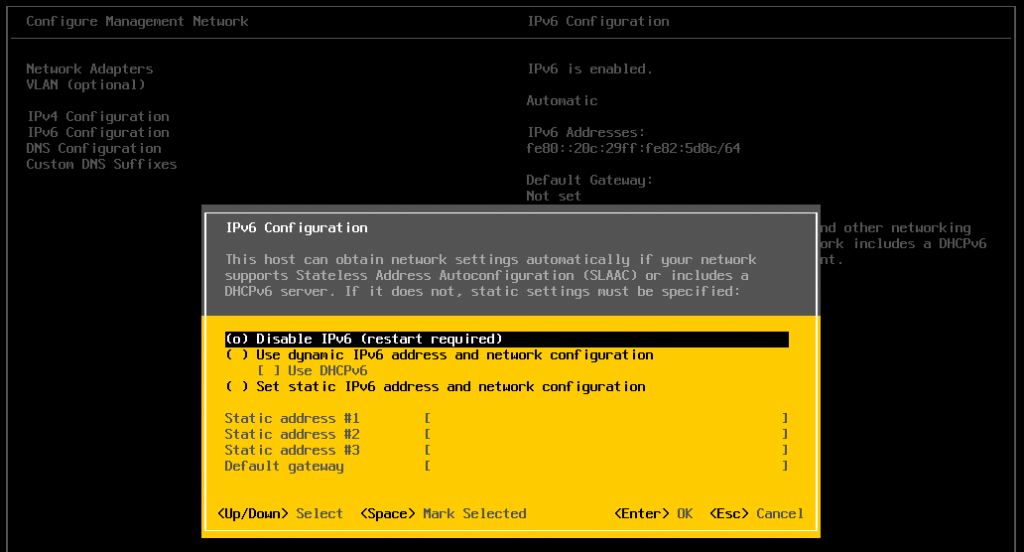This post is also available in: Italian
Reading Time: 2 minutesSeveral people are disabling IPv6 support in ESXi for different reasons: because of the minimum privilege principle (if you are not using a service, why you have to keep it enabled?) or simple because they don’t want any IPv6 address in the network.
On Linux and Windows systems is become very difficult disable it and Microsoft itself does not recommend disabling IPV6:
” We do not recommend that you disable IPv6 or its components, or some Windows components may not function.” (https://support.microsoft.com/en-us/kb/929852)
But what about VMware and ESXi itself? There isn’t a clear position, but it’s interesting notice that in ESXi 6.5 is no more possible disable IPv6 from the host client web UI.
It’s still possible from the DCUI:
Or also using CLI with one of this commands:
esxcli network ip set --ipv6-enabled=false
esxcli system module parameters set -m tcpip4 -p ipv6=0
Note that you always need to reboot the host to apply this changes. Same apply if you are using host profiles, if you change the IPv6 setting a host reboot is performed.
But does it make sense change this setting, considering also that you need to perform an host reboot? Actually could be better and simple just keep it enable and maybe start plan to use it, because it can provide some benefit, like the auto configuration of the address, without a need of an external DHCP. For example could be interesting for vMotion interfaces that are just private and needed only across ESXi.
Another reason to don’t disable is a bug in ESXi 6.5 (that seems has not been fixed yet with Update 1): the ESXi host 6.5 may fail with a PSOD when IPV6 is disabled! More information on KB 2150794 (ESXi 6.5 host fails with PSOD when IPV6 is disabled).




